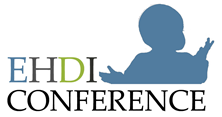| Presenter Information: |
| Presenter 1: |
Name: Terrell Clark
Affiliation: Children's Hospital Boston
Dr. Terrell Clark is Director of the Deaf and Hard of Hearing Program of the Children’s Hospital Boston at Waltham. A pediatric psychologist whose specialty work is with children who are deaf or hard of hearing and with their families, Dr. Clark is a Senior Associate in the Department of Psychiatry at Children's Hospital Boston and Instructor in Psychology at Harvard Medical School. She also teaches at Tufts University in the department of Child Development. The Deaf and Hard of Hearing Program staff comprises an interdisciplinary clinical and research group within the Department of Otolaryngology and Communication Enhancement of the Children’s Hospital Boston that includes specialists in psychology, audiology, medicine, education, language, and communication strategies. The program provides comprehensive evaluations and consultative services, guidance, and information to deaf and hard of hearing children and their referring physicians, families, agencies, and schools.
|
| Presenter 2: |
Name: Denise Fournier Eng
Affiliation: CHB
Denise Fournier Eng is a speech-language pathologist who is on the staff of Deaf and Hard of Hearing Program of the Children’s Hospital Boston at Waltham. She has worked in private school programs for deaf and hard of hearing children, public school settings, and in early intervention. An instructor in the deaf education master’s degree program at Boston University, Mrs. Eng has also taught at Framingham State College and Emerson College. She has extensive experience in supervision and training of graduate student clinicians from Northeastern University, the Massachusetts General Hospital Institute of Health Professions, Boston University, and McGill University. She has coordinated in-service training programs for public schools and parents. Her areas of special interest include play and language development, caregiver responsiveness, and language modeling techniques and strategies.
|
| Presenter 3: |
Name: Amy Szarkowski
Affiliation: CHB
Dr. Amy Szarkowski is a Fellow in Psychology at Children’s Hospital Boston in the Deaf and Hard of Hearing Program and a Clinical Fellow at Harvard Medical School. She is involved in conducting psychological assessments and short-term therapy with children with hearing loss and their families. Her educational background includes master’s degrees in Educational/Developmental Psychology, Clinical Psychology, and Administration & Supervision, as well as a doctorate in Clinical Psychology from Gallaudet University. More recently, Dr. Szarkowski has received additional training in bioethics and she currently serves on the Ethics committee at the hospital. Her research interests are in studying the impact on families of having a deaf or hard of hearing child, as well as quality of life issues for persons with hearing loss. Dr. Szarkowski also serves as adjunct faculty in the Psychology Department at Northeastern University in Boston.
|
| Presenter 4: |
Name: Charlotte Mullen
Affiliation: CHB
Charlotte Mullen has been a clinical Audiologist at Children’s Hospital Boston for over twenty years. She specializes in amplification and educational management of deaf and hard of hearing children. She has recently developed the Sound Outreach to Schools program to provide educational Audiology services to children and teachers in the schools. She received her Master’s Degree from Western Michigan University in Kalamazoo, MI and is currently working towards her AuD degree from Salus University in Elkins Park, PA. She co-authored a 2005 article “Factors Associated with Sensorineural Hearing Loss Among Survivors of Extracorporeal Membrane Oxygenation Therapy” in the journal Pediatrics. This article led to changes in the Joint Committee on Infant Hearing 2007 recommendations for follow-up testing of these critically ill newborns.
|
|
| Abstract Information: |
| Title: |
Parents Informing Practice |
| Primary Track: |
6-Family Issues
|
| Keyword(s): |
team approach parenting clinical response |
Abstract: |
Extraordinary factors that require extraordinary responses on the part of service providers are necessary in response to serving the needs of some families. While there may be preferred and customary regimes for diagnostic work-up and recommendations for implementation of intervention for children with congenital hearing loss, professionals who are receptive to acknowledging and are informed by what parents convey about their unique family circumstances will best serve each child.
Presenters on this panel function as members of an integrated and interdisciplinary team in a large, pediatric, medical facility. The team derives mutual support through collegically shared insights and our clinical practices are constantly informed by the parents of children we serve. This panel presentation will reflect lessons learned from our research studies conducted with parents of deaf and hard of hearing children, highlight case study examples, and explore recommendations for future research and novel options in utilizing parental strengths and overcoming potential barriers to families accessing services.
Parenting children with hearing loss adds many extra tasks: arranging numerous appointments, dealing with equipment repair/maintenance, even learning how to communicate with one’s own child. Additionally, stresses in coping with complex medical conditions, the potential for miscommunication because of parents and providers having divergent cultural orientations, and other extraordinary factors impinge on parents’ navigating through the maze of opinions and options presented to them.
Constantly informed by parents, this clinical team endeavors to create avenues and approaches that reach past the atmosphere of the hospital and into the home, community, and program settings of children and their families to help assure that the advantages of early identification are not squandered on ineffective interventions or delayed implementation of potentially effective interventions. Results of assessments and the rationale for recommendations must make sense within the strengths and perspectives of the family’s culture, relationships, and resources. |
| Presentation(s): |
Not Available
|
| Handouts: |
Not Available
|
|

